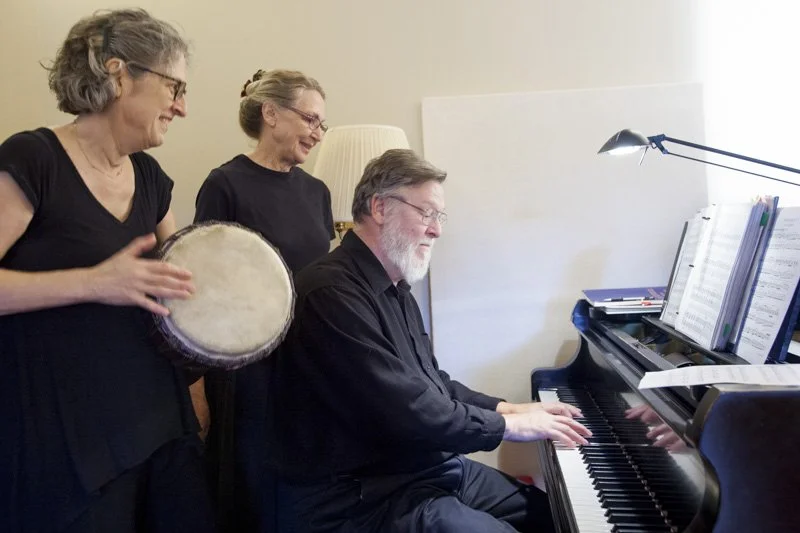Music
G. I. Gurdjieff viewed all art and music as being either subjective or objective. Subjective music is created with only a limited knowledge of the laws of vibration and their consequences, and it can produce only an accidental response in the listener. Objective music is based on an exact knowledge of the mathematical laws that govern the vibration of sound and the relationship of tones, and it produces a specific and predictable response based on the listener’s inner state.
Gurdjieff, in collaboration with the composer Thomas de Hartmann, wrote more than two hundred musical compositions for piano. This prolific body of work, a blending of Eastern and Western elements, is testimony to the importance he placed on music in the overall development of the human being. This collection includes both music written to accompany the Movements (sacred dances) that Gurdjieff choreographed as well as music composed simply to be listened to. This latter music was intended to change the listener’s state and to facilitate the application of the methods of this work.
The musicians of the Rochester Gurdjieff Center study and practice all the music written by Gurdjieff-de Hartmann. The musicians work with as much consciousness as possible to bring their minds, their bodies, and their hearts into the playing of this music, so that its meaning can be transmitted to the listeners. Musicians with less experience in the Gurdjieff work are carefully trained by those with more experience.
In preparation for accompanying Movements classes, the musicians work together on the music written for Movements. They also study piano improvisation for those Movements and exercises for which no music was written. This presents a demand for the musician to support an unrehearsed rhythm, tempo, and structure of a Movement or exercise given by the Movements instructor.
In all the music, the musicians strive to convey in their playing the quality of the Movement or exercise by sensing the movement inside themselves as they play for the class.
The musicians also practice the non-Movements music which is played in special conditions when the members of the Rochester Gurdjieff Center are gathered together. In listening to the Gurdjieff-de Hartmann compositions, musicians and non-musicians alike must discover in themselves a particular condition of alert receptivity, which might allow them to experience that which is contained within the music.
The music team also experiments with the human voice and with instruments other than piano. A chorus, led by Robert Kerner, explores the work of Gurdjieff-de Hartmann arranged for voice as well as sacred choral music from other traditions.

